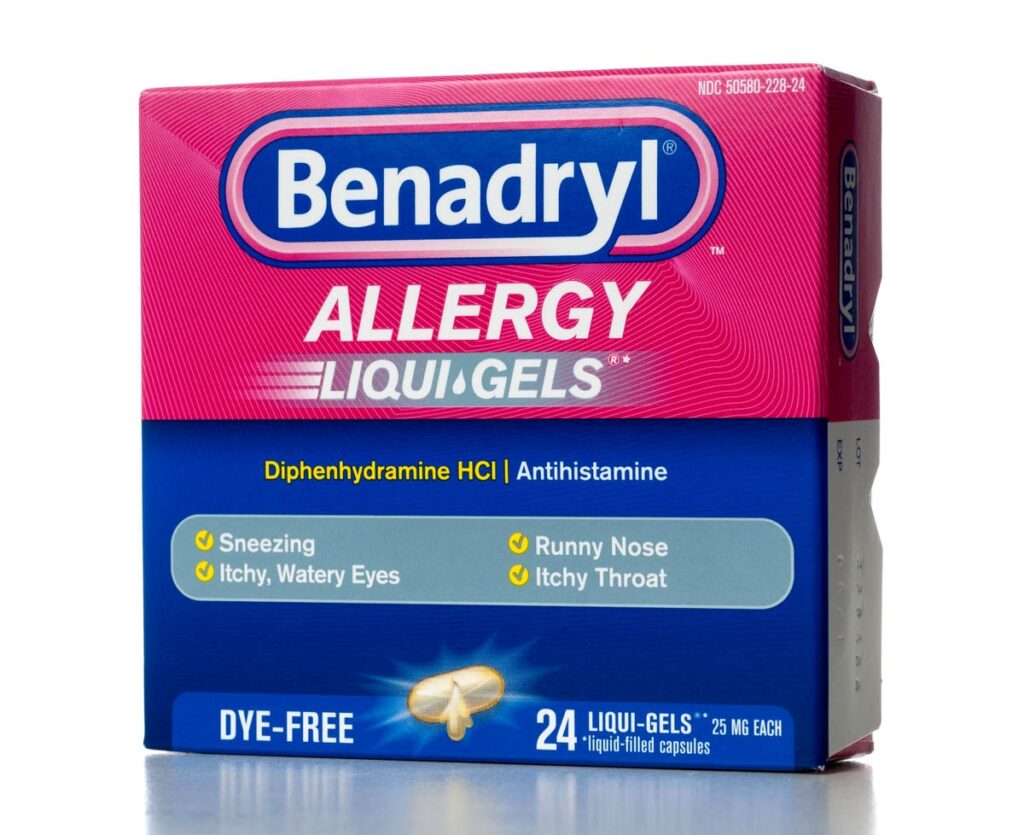Benadryl Allergy 24 Liqui-Gels capsules containing diphenhydramine HCL
Despite misleading headlines, such as “Sudafed, Benadryl and most decongestants don’t work,” the over-the-counter antihistamine Benadryl is not being pulled from pharmacy shelves.
A Food and Drug Administration advisory committee voted 16-0 on Tuesday that current scientific data does not support the use of the active ingredient, phenylephrine, in OTC products such as Benadryl Allergy Plus Congestion. This does not, however, pertain to antihistamines such as Benadryl, which contain the active ingredient diphenhydramine.
Brand names with medications that include phenylephrine, such as Benadryl, have other products with distinct active ingredients. The FDA committee voted on the question of whether evidence supported the use of the active moiety phenylephrine as an effective nasal decongestant. The panel concluded that products which include phenylephrine are not effective against nasal congestion, though they were not deemed unsafe.
Though the FDA is not bound to the committee’s recommendations it’s very likely the agency will follow its advice. In turn, this may lead to pharmacies pulling products containing oral phenylephrine, at least until acceptably reformulated versions are offered.
There are branded products that include the names Sudafed and Benadryl that do work as nasal decongestants. These contain the active ingredient pseudoephedrine. But because the dangerous illicit substance methamphetamine can be made in illegal laboratories with pseudoephedrine these products were placed behind the counter years ago. In 2005, Congress passed the Combat Methamphetamine Epidemic Act, which requires that pharmacies and other retail stores maintain purchase logs for products that include pseudoephedrine and it limits the amount of those products an individual can purchase per day. Pseudoephedrine-based drugs are not affected by the FDA panel’s vote. They will remain available behind the counter.
The Antihistamine Benadryl
Phenylephrine is in numerous products claiming to be decongestants, including several with the names Sudafed and Benadryl attached to them: Specifically, Sudafed PE and Benadryl Allergy Plus Congestion.
The latter is different from the first-generation antihistamine, Benadryl, which contains the active ingredient diphenhydramine. It’s been used by allergy sufferers since 1946 and has been available OTC in the U.S. since the 1970s.
Despite the antihistamine Benadryl not being impacted by the FDA committee’s vote, this isn’t to say that OTC Benadryl isn’t without controversy. Outside the U.S., in many jurisdictions, including Germany, the Netherlands and Sweden, Benadryl is only available with a prescription. This is because as a first-generation antihistamine diphenhydramine crosses the blood-brain barrier, which causes sedation in patients.
Moreover, the FDA has issued warnings that taking higher than recommended doses of the antihistamine Benadryl can lead to serious heart problems, seizures, coma or even death. The newer generation, less-sedative OTC antihistamines, such as Claritin (loratadine) and Zyrtec (cetirizine) are generally considered safer than first-generation ones.
Nevertheless, in the U.S. the antihistamine Benadryl containing diphenhydramine will remain OTC and continue to be available at pharmacies nationwide.


